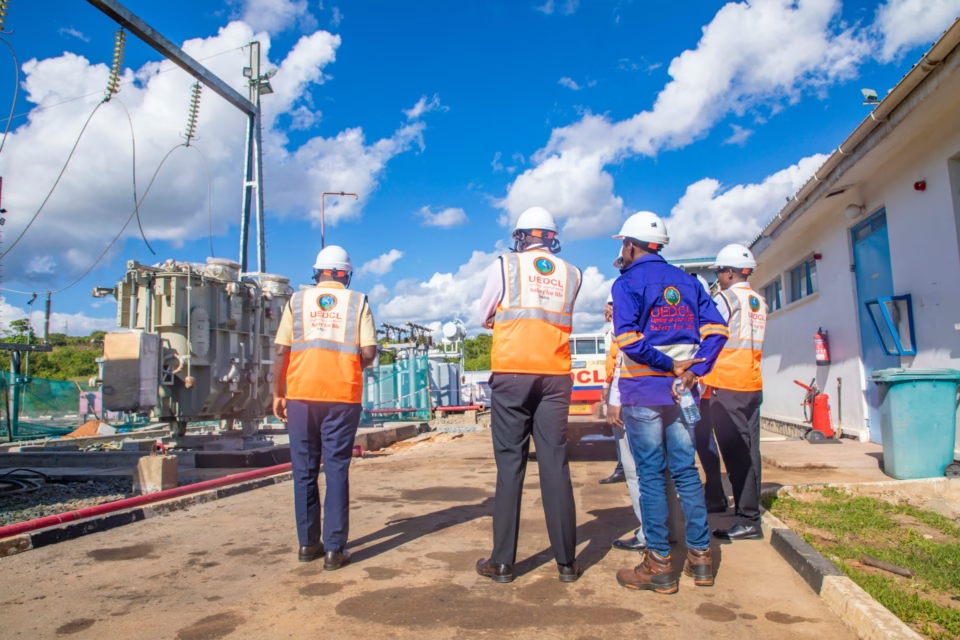The state-owned Uganda Electricity Distribution Company Limited (UEDCL) is injecting Shs267.5 billion ($74 million) into an ambitious network overhaul aimed at improving power reliability and expanding electricity access across the country. The investment—approved by the Electricity Regulatory Authority (ERA) for rollout in 2025—includes the refurbishment of aging lines, installation of over 518 transformers, and construction of new substations.
This comes nearly two months after UEDCL took full operational control of Uganda’s electricity distribution network, following the expiry of Umeme Ltd’s 20-year concession on March 31, 2025.
“We are scaling up investments to improve power reliability and ensure every Ugandan household and business can access safe, affordable, and sustainable electricity,” said UEDCL Managing Director Paul Mwesigwa. “We urge the public to support this transformation journey.”
As part of its rollout, UEDCL has already replaced all 116 faulty transformers inherited from Umeme—ranging from 25kVA to 1MVA—boosting stability across several regions. Planned shutdowns are also being executed nationwide to enable infrastructure upgrades. These efforts are coordinated closely with the Uganda Electricity Transmission Company Limited (UETCL) at major substations in Mutundwe, Namanve, Kawanda, Nkenda, and Mbarara North.
To expand access, UEDCL plans to connect 225,000 new customers over the next eight months via its 100 service centers. Three-phase and no-pole household connections commenced in mid-April, supported by a digitized application process and a robust inventory of meters.
The utility has already onboarded 96% of its workforce, with the remaining 4% expected to be hired shortly. New recruits are undergoing rigorous training at the Njeru training centre, focusing on cultural integration and change management to align with UEDCL’s strategic goals.
Customer service has also been enhanced. UEDCL has launched 24/7 contact centers and broadened its digital engagement platforms to improve responsiveness and transparency.
Despite progress, UEDCL is grappling with persistent challenges, notably vandalism and illegal power connections. In the past month alone, nine incidents were recorded in Nakasongola and Luwero, with others reported in Mityana and Mukono.
The company has intensified collaboration with law enforcement and urged communities to report vandalism through toll-free lines, local leaders, and media channels. Community engagement initiatives, including local baraza meetings, are ongoing in affected regions such as Wabigalo, Kakoge, Katugo, and Nakasongola.
UEDCL’s formal takeover on December 31, 2024, is part of a government-led strategy to fully integrate electricity generation, transmission, and distribution under public control. To fund the transition, Parliament approved a $190 million loan from Stanbic Bank in March to compensate Umeme for unrecovered capital investments.
In total, UEDCL is mobilizing $465 million—$255 million for Umeme’s buyout and $210 million for infrastructure expansion.
While Umeme reduced power losses from 38% in 2005 to 16.2% by 2023, it struggled with aging infrastructure, regulatory disputes, and criticism over rising tariffs—issues UEDCL must now navigate.
Experts stress that UEDCL must match or exceed Umeme’s performance in operational efficiency, infrastructure robustness, and dispute resolution to succeed.
Meanwhile, Umeme has announced it will pursue international arbitration in London to recover $292 million (Shs1.1 trillion) it claims is still owed by the Ugandan government. The company expressed dissatisfaction with the Shs426.5 billion ($118 million) paid so far as part of its exit compensation.
In a public notice on June 2, Umeme stated, “Despite our best efforts in good faith negotiations, a mutual agreement on the full and fair value of our investments could not be reached.”
The Office of the Auditor General is currently reviewing Umeme’s 2025 investment claims, which could lower the disputed amount. However, with no agreement reached, Umeme’s board has resolved to initiate arbitration proceedings.
The dispute has delayed the company’s financial reporting, prompting Umeme to request an extension from the Uganda Securities Exchange. Its 2024 results are now expected by June 12, 2025, and trading of its shares remains suspended until then
As Uganda advances its industrialization and rural electrification agenda, a stable and efficiently managed electricity distribution network will be critical.
“Reliable power is not just a utility service—it’s the backbone of economic transformation,” Mwesigwa emphasized. “We are committed to delivering power where and when it is needed, ensuring progress reaches every Ugandan household and business.”



